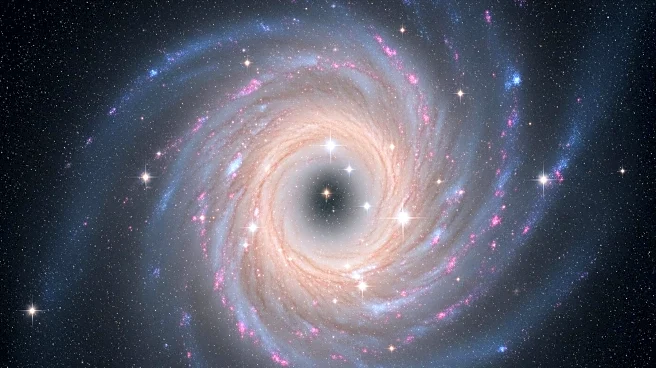What's Happening?
Astrophysicists are re-evaluating the nature of black holes, considering alternative theories such as gravastars and fuzzballs. These theories suggest that what we perceive as black holes might be different entities altogether, potentially lacking singularities. The debate arises from the challenges in observing singularities, as nothing can escape a black hole's event horizon. Researchers are developing new theories and tools to explore these possibilities, aiming to understand the true nature of these cosmic phenomena.
Why It's Important?
This exploration into the true nature of black holes could revolutionize our understanding of fundamental physics and the universe. If black holes are not as traditionally conceived, it could lead to new physics beyond general relativity, impacting theories of gravity and space-time. This research could also influence our understanding of cosmic phenomena, such as gravitational waves and the formation of galaxies, potentially leading to groundbreaking discoveries in astrophysics.
What's Next?
Researchers are continuing to analyze data from gravitational wave observatories and the Event Horizon Telescope to gather more evidence. Future missions, like the proposed Black Hole Explorer, aim to provide more detailed observations, potentially confirming or refuting the existence of singularities. This ongoing research could lead to a deeper understanding of the universe's most enigmatic objects and the laws governing them.









